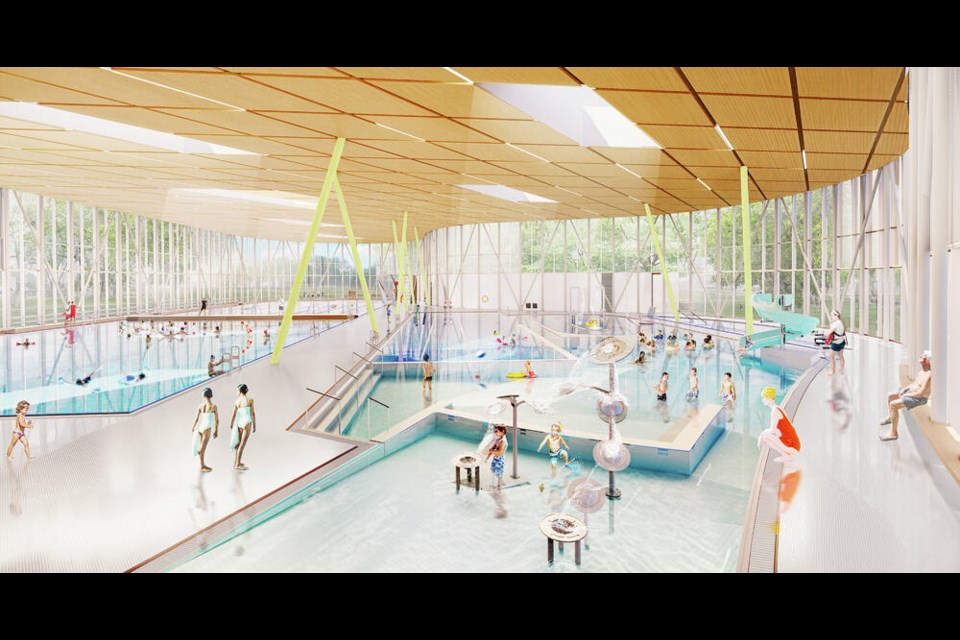Replacing the 53-year-old Crystal Pool will cost between $209.2 million and $232.9 million, according to a new feasibility study released ahead of a Victoria council meeting to determine a course of action.
The study, prepared by HCMA Architecture + Design, studied three potential sites for a new Crystal Pool — the existing site; the parking lot at 940 Caledonia Ave., currently home to the Caledonia Place temporary housing facility; and the current playground and sports courts at Central Park adjacent to the pool.
It concluded building a new facility on the existing footprint makes the most sense.
According to a staff report and synopsis of the feasibility study, the existing site is the most economical and efficient option, which translates into a shorter construction timeline with reduced complexity and risk.
But it still comes with a big price tag.
The option for the existing site is estimated to cost $209.2 million, would take five to six years to build.
By comparison, the previous city council had replacement estimates in the $70-million neighbourhood.
The city has talked about replacing the facility for years due to the need for costly upgrades, the cost of maintenance estimated at about $2 million a year and its inefficient use of energy.
The previous council left the issue of replacing Crystal Pool for this council to deal with; the project was left out of the 2022 strategic plan due to the pandemic.
According to city staff, time is not on the city’s side. The delay in making a decision on what to do with Crystal Pool has already nearly tripled the estimated cost.
There’s an additional $76.5 million due to the increased costs of labour and materials, and interest-rate pressures; increased “soft costs” of about $33 million; $15.5 million for underground parking; and $14 million as a result of building code and energy regulation changes.
City staff have said they are hopeful there might be some federal and provincial infrastructure funding available to bring down the amount of money the city will need to borrow to build a new Crystal Pool.
As it stands, city staff have recommended using $30 million from the city’s debt reduction reserve to reduce borrowing to $179 million. Closing the existing facility during construction is expected to save as much as $9.63 million.
That will mean a big hit to the property tax bill. The average residential taxpayer will see a $64 annual increase to the property tax bill for the first three years during construction, followed by increases of $48 and $16 in years four and five.
Once the new building is open, the average residential taxpayer would pay an additional $256 per year for 20 years, while the typical business would pay $660 per year to finance the new facility.
The city staff proposal to build on the existing site will also mean the loss of a major recreational facility for years.
Staff have developed a plan to move dryland recreation programs offered at Crystal Pool to Crystal Garden, on Douglas Street. That plan requires a $750,000 capital budget for building improvements.
Staff estimate there is about 18 months of design work required before construction can start. During that time, programs would move to Crystal Garden.
As for aquatic services, the city intends to work with other municipalities to house programs and minimize the impact.
But before any of that happens council will have to endorse the city staff proposal or come up with an alternative.
And then the public will get a chance to have its say.
A referendum on Crystal Pool is inevitable as the city is required to seek public guidance for capital projects that break the $50-million threshold.
That referendum is expected to be held in the first quarter of 2025 and could include a binding question on the public’s willingness to borrow to build a new recreation centre.



